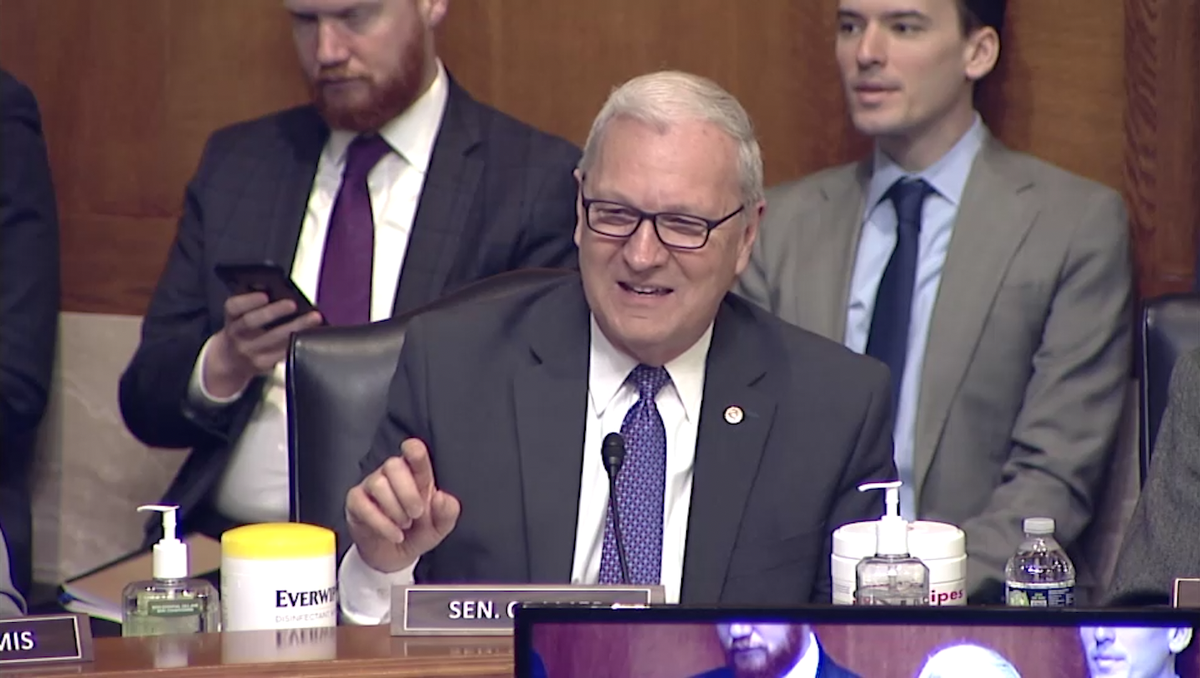Source: United States Senator Kevin Cramer (R-ND)
WASHINGTON – At a Senate Environment and Public Works Committee oversight hearing today, U.S. Senator Kevin Cramer (R-ND) responded to the false assertion that U.S. energy production does not have an impact on global prices while highlighting the need for increased domestic energy production and innovative solutions like North Dakota’s carbon capture projects. The United States produces energy with less greenhouse gas emissions than anyone in the world. If domestic production displaced dirtier foreign sources, global emissions would be reduced. However, the Biden Administration stands in the way.
“As I watched the markets today and I see that WTI and Brent are roughly $3 apart. I remember before lifting the ban they were $30 apart. In other words, the United States helped bring down the cost of oil globally. As opposed to being a price taker, we became a price maker. [This] is good for the world, it’s enhanced productivity and it’s brought prices down. Frankly, if we do a lot more [energy production in the United States], we could be the price maker yet again,” said Senator Cramer.
“We have this window of opportunity. Never in my wildest dreams when I would see my dad come home from climbing poles for Cass County Rural Electric Cooperative did I imagine I would be meeting on an almost daily basis with European energy leaders pleading with us to help them meet a demand they have and cut themselves off from Russia. We have a moment to do it cleaner, greener, and better by investing more in what we do really, really well. Quite honestly, I don’t want to be the leader of a new world order. I want to be the leader of a free world order. [This is] what the oil and gas industry has provided us in this country and what we are able to provide the world today,” continued Senator Cramer.
Senator Cramer then highlighted a Minnkota Power Cooperative carbon capture utilization and storage (CCUS) project with National Rural Electric Cooperatives Association CEO Jim Matheson and the challenges to CCUS innovation.
“Minnkota in North Dakota is on the very forefront of the commercial opportunity for carbon capture utilization and storage technologies, but you know there are some challenges to that. How can we be doing more to provide opportunities to innovate?” asked Senator Cramer.
“Foundationally, you always have to have an available supply to maintain reliability 24/7 I know I’ve said that a couple of times. I can’t say it enough. So we need to be thoughtful about how we talked about this in terms of a portfolio approach to all the sources of electricity generation in this country. It’s going to transition over time, but the portfolio has got to maintain reliability and affordability,” responded Matheson. “You mentioned specifically the Minnkota project. That’s right. It’s commercial-size carbon capture sequestration effort at a coal-fired power plant. It is an exciting opportunity. It represents a commitment by electric co-ops to try to be a part of the solution… if Congress wants to incent investments in these emerging new technologies, I would suggest you may want to create that incentive for everyone in the electric sector. Direct pay is the term we use. It’s a very popular item.”
In March 2021, Senator Cramer joined Senators Tina Smith (D-MN) and Shelley Moore Capito (R-WV) in introducing the Carbon Capture, Utilization, and Storage Tax Credit Amendments Act of 2021, which provides a direct pay option among other changes to support CCUS.
With Western Energy Alliance President Kathleen Sgamma, Senator Cramer discussed the climate benefits to domestic oil and gas production.
“What can we do to enjoy the incredible abundance of resources that we have in a way that is both clean and also recognizes America’s leadership?” asked Senator Cramer.
“We produce it here. We produce it more cleanly than any other country. [There are] more greenhouse gas emissions if you import it from overseas, so just produce it here,” answered Sgamma.
Senator Cramer concluded by saying he is worried about the signals being sent by the Biden Administration, specifically proposals released by the SEC, which will tamp down American energy production.
Background:
In December, Senator Cramer and Lt. General H.R. McMaster outlined an America First approach to trade and energy production by aligning climate and national security policy in an op-ed for Foreign Policy. Looking through the lens of trade with the European Union, the op-ed highlights opportunities to be a global leader on emission reductions by producing and exporting American energy, which enhances the United States’ economy, national security, and geopolitical interests. They further discussed this concept in a fireside chat with the Bipartisan Policy Center in February.
This month, Senator Cramer penned an op-ed in The Hill on the chilling effect of the Biden Administration’s radical financial nominees and hostility towards fossil fuels on the ability of America to become energy independent once again.
Senator Cramer has been a leader in the discussion about the overlap in banking and climate. As a part of his speaker series entitled “The Bully Pulpit”, the senator has hosted bank CEOs in North Dakota to discuss this. In September he hosted Goldman Sachs CEO David Solomon to participate in a town hall with North Dakota energy producers, and in November he hosted Bank of America CEO for town hall on climate solutions.
